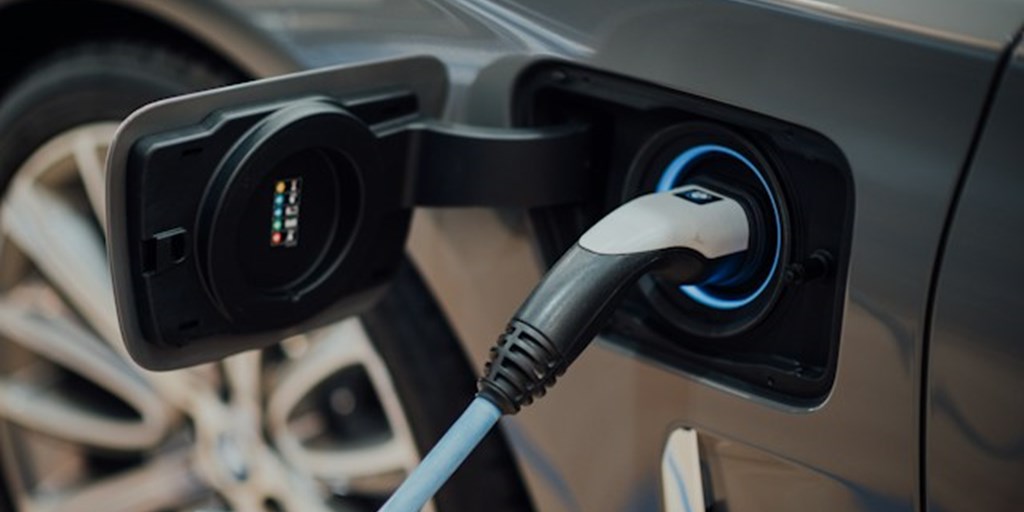Key Innovations in the EV Sector You’ll Find in Today’s Buy EV Charging news
Key Innovations in the EV Sector You’ll Find in Today’s Buy EV Charging news
Blog Article
Why 2024 Is a Game-Changer for EV Charging: Patterns and Insights
As we approach 2024, the electrical automobile (EV) charging landscape is set for considerable improvement, driven by the spreading of ultra-fast charging stations and developments in clever charging technologies. The unification of eco-friendly energy sources along with favorable government policies is likely to redefine the sustainability and availability of EV framework.

Growth of Ultra-Fast Charging Stations
Exactly how swiftly are ultra-fast charging terminals transforming the electrical lorry landscape? The spreading of ultra-fast charging stations is a critical growth in the EV market, substantially boosting the comfort and expediency of electric car possession. These stations, capable of providing charging rates up to 350 kW, can recharge an EV's battery to approximately 80% in as little as 15-30 minutes, successfully minimizing range anxiety amongst customers.
The development of ultra-fast charging facilities is being driven by both public and personal financial investments, showing a calculated change in the direction of lasting transportation options. Major automotive suppliers and energy business are collaborating to install these terminals along major freeways and urban centers, creating a considerable network that supports long-distance traveling and everyday usage.
Furthermore, improvements in battery technology are matching this development, allowing automobiles to maximize the increased charging rates. As the number of ultra-fast billing terminals remains to climb, they are anticipated to play an essential function in increasing EV adoption, cultivating a transition in the direction of a cleaner and more sustainable future. This expansion not just enhances user experience but additionally solidifies the viability of electrical lorries as a mainstream transportation option.
Advancements in Smart Charging Innovation
With the boosting assimilation of electronic modern technology in the electrical lorry field, developments in smart charging modern technology are substantially boosting the effectiveness and ease of EV billing. Smart billing systems utilize connectivity and information analytics to enhance the charging process, allowing users to charge their automobiles when electricity prices are lowest and demand on the grid is minimal.

Interoperability is an additional critical development, as new requirements and methods allow various EV models and billing stations to connect effortlessly. This boosts customer experience by supplying much more available charging alternatives throughout different networks. Eventually, the development of wise charging technology stands for a substantial step in the direction of a more user-friendly and lasting EV environment, leading the way for broader adoption and assimilation right into life.
Assimilation of Renewable Resource Sources
The combination of renewable resource resources right into EV billing facilities is becoming increasingly vital as the need for sustainable services expands. This fad not only helps reduce the carbon impact related to electric vehicle billing however also boosts grid resilience by advertising decentralized energy manufacturing.
Solar and wind power are at the forefront of this integration, with several charging stations currently integrating photovoltaic panels or being constructed in distance to wind farms. These eco-friendly sources can create clean electricity, giving a sustainable power supply for EVs. Additionally, advancements in power storage modern technologies, such as batteries, help with the reliable storage of excess energy created during optimal production hours, making certain that charging terminals can operate effectively also when renewable generation is reduced.

Growth of Charging Facilities
As electrical automobile (EV) fostering speeds up, the development of charging framework has ended up being a crucial emphasis for stakeholders across the vehicle and power industries - EV Charging news. The demand for a robust and obtainable billing network is important to sustain the growing variety of EVs when traveling and to reduce array anxiety among customers
In 2024, we are seeing substantial financial investments from both private companies and public entities targeted at enhancing the charging landscape. This includes the setup of fast-charging terminals along freeways and in metropolitan facilities, which can reenergize EVs in a portion of the moment contrasted to typical battery chargers. In addition, collaborations in between car manufacturers and energy suppliers are facilitating the deployment of innovative billing remedies to fulfill varied customer demands.
Additionally, innovations in modern technology are bring about smarter billing systems that enhance energy distribution and reduce prices. The assimilation of these systems is crucial for accommodating the predicted rise in need as more consumers transition to electrical wheelchair. The growth of charging infrastructure not just sustains the EV market however also plays a vital duty in attaining wider sustainability goals, making it a pivotal part in the development of transportation.
Federal Government Plans and Rewards
Government plans and rewards are increasingly forming the landscape of electric vehicle (EV) fostering and charging framework advancement. Governments globally are acknowledging the urgent requirement to transition to cleaner her response transport options, leading to the execution of different campaigns targeted at accelerating EV fostering. These policies commonly include tax obligation credit ratings, discounts, and grants for customers and companies that purchase electric automobiles and charging terminals.
Along with guide financial rewards, many governments are developing ambitious targets for EV sales and mandating the installment of charging facilities in brand-new advancements. A number of nations have actually committed to phasing out interior combustion engine lorries within the following years, developing a sense of seriousness that drives both customers and suppliers toward electric choices.
Additionally, public-private collaborations are emerging as an important element of these initiatives, promoting financial investment in charging networks and guaranteeing extensive gain access to. By straightening governing structures with economic incentives, governments original site are not only fostering a conducive environment for EV adoption but also attending to worries associated with vary anxiousness and billing accessibility. This durable policy landscape is readied to make 2024 a critical year in the shift to electric movement.
Conclusion
The year 2024 is readied to revolutionize the electrical lorry billing landscape with the expansion of ultra-fast charging stations, developments in smart billing modern technologies, and the assimilation of renewable resource resources. The growth of charging framework, strengthened by helpful government policies and motivations, will deal with range anxiousness and improve the appeal of electrical automobile ownership. Collectively, these growths will foster a easily accessible and sustainable setting for electric vehicle fostering, guaranteeing a durable future for the market.
As we approach 2024, the electrical vehicle (EV) billing landscape is set for significant improvement, driven by the proliferation of ultra-fast billing stations and innovations in wise charging modern technologies. The expansion of ultra-fast charging stations is an essential advancement in the EV field, dramatically boosting the benefit and usefulness of electric lorry ownership. Clever charging innovations assist in remote monitoring and administration, enabling individuals to set up charging sessions by means of mobile applications.
Government policies and motivations are increasingly shaping the landscape of electrical vehicle (EV) adoption and billing infrastructure advancement.The year 2024 is established to revolutionize the electric automobile billing landscape through the expansion of ultra-fast billing terminals, developments in wise billing technologies, and the combination of sustainable power resources.
Report this page